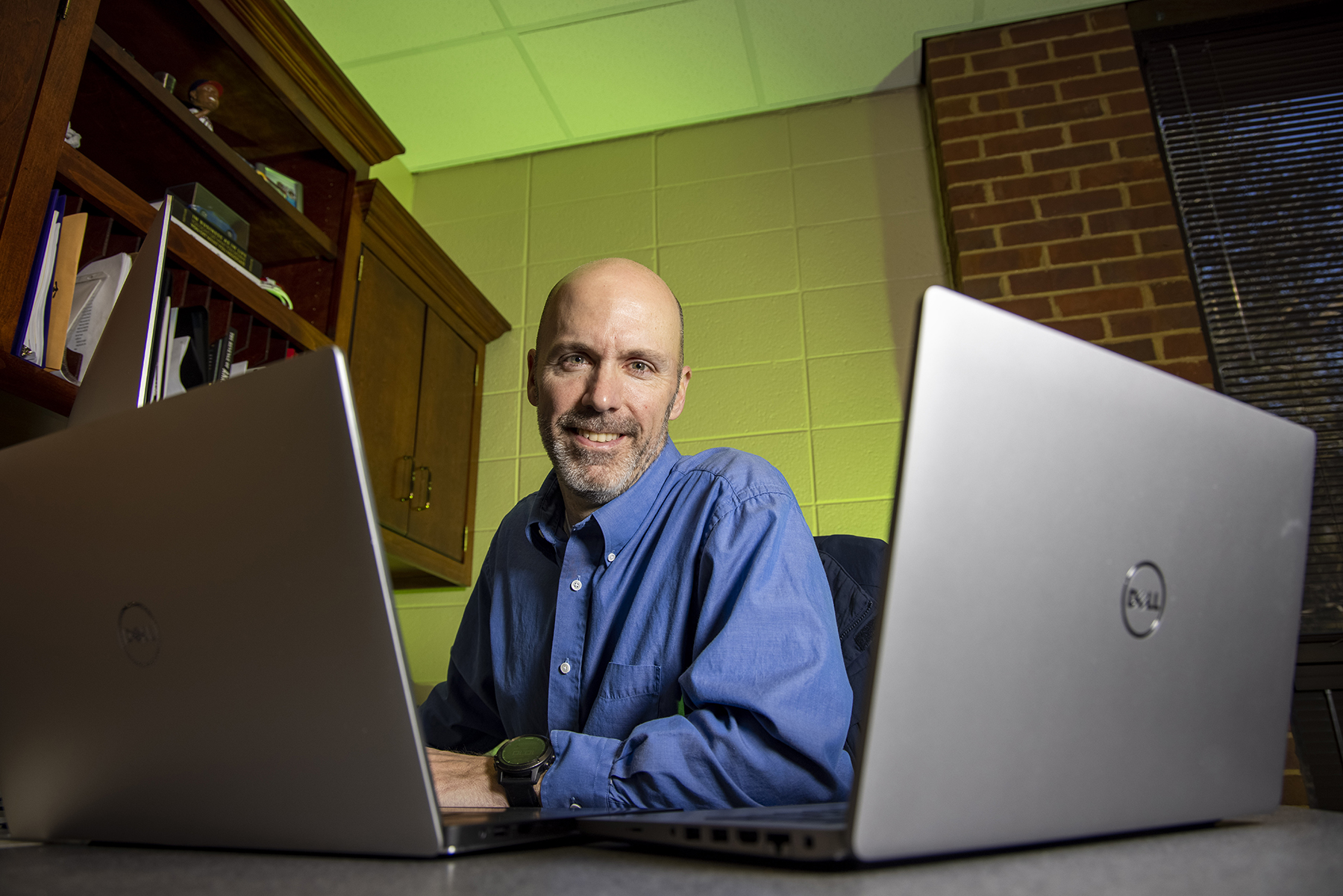Brian Perkins arrived in Athens in 1994 as a student at the University of Georgia. Before he knew it, he was hired on campus and started working full time.
That was about 20 years ago. Now, Perkins is the IT director in the Odum School of Ecology, where he’s responsible for everything from network security to training faculty, students and staff on new technology.
Evolution of a ‘one-man shop’
Because Perkins has worked at UGA for about two decades now, his job has evolved. He began working in plant biology, which at the time was the botany department.
“I was a one-man shop,” he said. “I was the only IT professional within plant biology.”
In the 1990s, the demand for technology support wasn’t nearly as high as it is today.
“Back in the ’90s, students didn’t sit there with laptops. They sat there with a notebook—paper and pencil. Now that’s obsolete,” Perkins said. “Everybody’s sitting at their desk with a laptop. They’re doing their homework and assignments on computers.”
Since then, he’s moved into the Odum School of Ecology and said that the workload has increased as technology services have become more pertinent in the 2000s and 2010s.
The integration of technology within universities like UGA comes with additional security risks, including the risk of losing an assignment. Perkins said he doesn’t know how many times a student has come up to him with a USB stick, explaining that their homework was once on it and now is nowhere to be found.
“It’s just everything,” he said. “We depend on IT so much more now than we did even 10 years ago.”
Reliance on tech during a pandemic
The sheer importance of technology, especially within a university, was thrust into the spotlight when the novel coronavirus pandemic hit in 2020. Although most people rely on technology and IT, the pandemic “brought it to another level,” Perkins said.
In March 2020, in-person classes and work quickly transitioned to virtual formats. The goal was to attempt to keep the normal routine without trying to invent a new schedule for the unit, he said.
Even though the transition was smooth, namely for Perkins and his colleagues, that’s not to say that virtual and remote work is ideal.
“I think everybody misses a sense of community on campus,” he said. “Our unit is a pretty small, close-knit unit, so I think our unit really misses the in-person teaching, seminars, research and social activities. Everybody’s missing that face-to-face contact.”
The best part of the job
Although Perkins loves helping students, faculty and staff as well as the “never mundane” aspect of his work, it’s that sense of community that’s his favorite part of being IT director.
“Oh, the best part of my job is absolutely the relationships with the faculty, staff and students—that’s it for me. I enjoy the people I work with,” Perkins said. “We have a close-knit staff. We’re not like a normal college on campus where you may not know other staff members under your college.”
Luckily, Perkins and his colleagues have been able to maintain a sense of community, albeit different than it was before COVID-19. Still, he said he’s curious what life after the pandemic will look like at UGA and beyond.
For now, though, Perkins plans to keep excelling in IT and helping students, staff and faculty with whatever their technology needs may be. After 30 years, he might retire from UGA, but he doesn’t think he’ll retire for good. No matter if he stays in IT or not, he said he’ll definitely be working with people in some capacity.
Outside of work, Perkins and his wife, Nancy, who works in the Franklin College of Arts and Sciences’ microbiology department, enjoy exercise like hiking and going on walks and have enjoyed it even more during the pandemic. Before COVID-19, he and his family—including his two children, Nathan and Emma—also enjoyed taking road trips.
“We look forward to everyone getting vaccinated and us all getting back to a normal routine so we can maybe take another road trip, because we certainly enjoy doing that—seeing parts of the country that I’ve never seen before,” he said.


